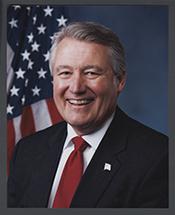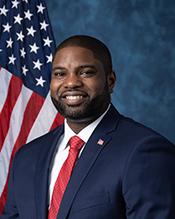0
0
0
American Science First Act
12/15/2023, 3:53 PM
Summary of Bill HR 401
The American Science First Act, also known as Bill 118 hr 401, is a piece of legislation introduced in the US Congress with the aim of promoting and prioritizing scientific research and innovation in the United States. The bill seeks to strengthen the country's position as a global leader in science and technology by investing in research and development across various fields.
One of the key provisions of the American Science First Act is the establishment of a National Science Foundation (NSF) grant program to support research in critical areas such as artificial intelligence, cybersecurity, and biotechnology. The bill also calls for increased funding for STEM education programs to ensure that the next generation of scientists and engineers are well-equipped to tackle the challenges of the future.
Additionally, the American Science First Act includes measures to streamline the process for obtaining research grants and reduce bureaucratic barriers that can hinder scientific progress. The bill also emphasizes the importance of collaboration between government agencies, academic institutions, and private industry to drive innovation and technological advancement. Overall, the American Science First Act aims to foster a culture of innovation and excellence in scientific research in the United States, with the goal of maintaining the country's competitive edge in the global marketplace. By investing in research and development and supporting the next generation of scientists and engineers, the bill seeks to ensure that the US remains at the forefront of technological innovation for years to come.
One of the key provisions of the American Science First Act is the establishment of a National Science Foundation (NSF) grant program to support research in critical areas such as artificial intelligence, cybersecurity, and biotechnology. The bill also calls for increased funding for STEM education programs to ensure that the next generation of scientists and engineers are well-equipped to tackle the challenges of the future.
Additionally, the American Science First Act includes measures to streamline the process for obtaining research grants and reduce bureaucratic barriers that can hinder scientific progress. The bill also emphasizes the importance of collaboration between government agencies, academic institutions, and private industry to drive innovation and technological advancement. Overall, the American Science First Act aims to foster a culture of innovation and excellence in scientific research in the United States, with the goal of maintaining the country's competitive edge in the global marketplace. By investing in research and development and supporting the next generation of scientists and engineers, the bill seeks to ensure that the US remains at the forefront of technological innovation for years to come.
Congressional Summary of HR 401
American Science First Act
This bill prohibits the National Science Foundation (NSF) from providing grants or other forms of assistance to certain foreign individuals and entities. Specifically, the NSF may not support any individual or entity that is affiliated or otherwise has a relationship, including but not limited to a research partnership, joint venture, or contract, with
- an entity included on the entity list under the Export Administration Regulations, which identifies foreign entities subject to license requirements for the export, reexport, or transfer of certain items;
- a Chinese military company operating in the United States or any of its territories or possessions on the list required under the Strom Thurmond National Defense Authorization Act for Fiscal Year 1999, or required under the Mac Thornberry National Defense Authorization Act for Fiscal Year 2021, or any successor list; or
- any parent, subsidiary, affiliate of, or entity owned by or controlled by any such entity.
Read the Full Bill
Current Status of Bill HR 401
Bill HR 401 is currently in the status of Bill Introduced since January 20, 2023. Bill HR 401 was introduced during Congress 118 and was introduced to the House on January 20, 2023. Bill HR 401's most recent activity was Referred to the House Committee on Science, Space, and Technology. as of January 20, 2023
Bipartisan Support of Bill HR 401
Total Number of Sponsors
1Democrat Sponsors
0Republican Sponsors
1Unaffiliated Sponsors
0Total Number of Cosponsors
2Democrat Cosponsors
0Republican Cosponsors
2Unaffiliated Cosponsors
0Policy Area and Potential Impact of Bill HR 401
Primary Policy Focus
Science, Technology, CommunicationsPotential Impact Areas
- Asia
- China
- Foreign and international corporations
- Military procurement, research, weapons development
- Research administration and funding
Alternate Title(s) of Bill HR 401
American Science First Act
American Science First Act
To prohibit the Director of the National Science Foundation from awarding grants and other forms of assistance to Chinese communist military companies and their affiliates, and for other purposes.
Comments
Sponsors and Cosponsors of HR 401
Latest Bills
Providing amounts for the expenses of the Committee on Ethics in the One Hundred Nineteenth Congress.
Bill HRES 131December 12, 2025
Providing for congressional disapproval under chapter 8 of title 5, United States Code, of the rule submitted by the Bureau of Land Management relating to "Central Yukon Record of Decision and Approved Resource Management Plan".
Bill HJRES 106December 12, 2025
Expressing the sense of the House of Representatives in condemning the Government of the People's Republic of China for its harassment and efforts to intimidate American citizens and other individuals on United States soil with the goal of suppressing speech and narratives the People's Republic of China finds unwelcome.
Bill HRES 130December 12, 2025
Providing for congressional disapproval under chapter 8 of title 5, United States Code, of the rule submitted by the Bureau of Land Management relating to "North Dakota Field Office Record of Decision and Approved Resource Management Plan".
Bill HJRES 105December 12, 2025
Providing for congressional disapproval under chapter 8 of title 5, United States Code, of the rule submitted by the Bureau of Land Management relating to "Miles City Field Office Record of Decision and Approved Resource Management Plan Amendment".
Bill HJRES 104December 12, 2025
Providing amounts for the expenses of the Select Committee on the Strategic Competition Between the United States and the Chinese Communist Party in the One Hundred Nineteenth Congress.
Bill HRES 104December 12, 2025
Critical Access for Veterans Care Act
Bill S 1868December 12, 2025
OATH Act of 2025
Bill S 1665December 12, 2025
A bill to extend the authority for modifications to the Second Division Memorial in the District of Columbia.
Bill S 1353December 12, 2025
Saving Our Veterans Lives Act of 2025
Bill S 926December 12, 2025

